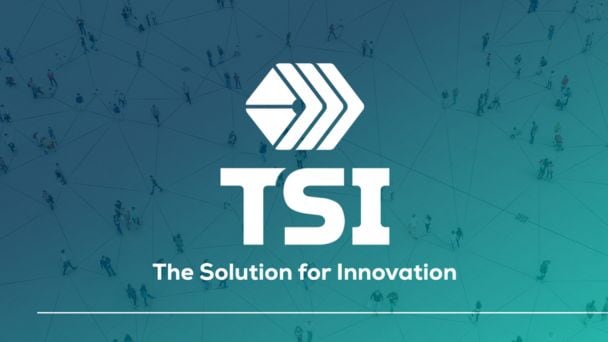To remain competitive in today’s dietary supplement market, not only is speed-to-market of great importance, ensuring your supplement is thoroughly intact and qualitative is likewise expected and required by consumers worldwide.
Research is driving higher levels of sophistication and complexity of dietary supplements which are viewed as health-supporting solutions rather than supplements. This gives rise to greater expectations of product quality and performance – especially during a pandemic when reliance on health products is more stratospheric than ever. Post-pandemic, this attitude and desire will surely remain.
TSI is known as a premiere supplier of glucosamine ingredients, but we are also, equally, a distinguished granule raw material producer of merit. This is a critical product to provide especially as demand for easy-to-take supplements has accelerated so dramatically, and tablets remain the dominant delivery form worldwide.
As such, the technical ability to ensure tablets that hold up as consumers expect – intact and uniform – is required when the supply chain can be marked by disruptions. DC granulated raw material such as Vitamin C and glucosamine ensure tablets are properly formed with correct and attractive density, and with significantly reduced waste during production.
Direct compression granules are the most effective form for tableting, bar none. Ingredients in this form solve or prevent any potential major technical aberrations in the tablet manufacturing process.
Take glucosamine, for example. Compressing conventional glucosamine powder into viable tablets is a difficult task to achieve consistently. When making a glucosamine tablet product, manufacturers usually aim to ensure each tablet provides a daily dose of 1500 mg glucosamine. Additionally, microcrystalline cellulose (MCC) is added as an excipient to improve compressibility and hardness. However, the added ingredient increases the size of the tablet.
This creates a problem:1500 mg glucosamine in a single tablet leaves scant room for other potentially necessary excipients or lubricants before the tablet becomes too large to swallow. Therefore, a manufacturer attempting to make a product that maximizes the active ingredients must balance this need with tablet quality and size. All too often, this results in a bottle containing a stew of broken tablets, tablets with uneven edges, low hardness and yellow spots, as well as crumbs and powder from disintegrated tablets.
This challenge is further encountered when other active ingredients are combined with glucosamine to create complex formulas.
The basis of this challenge is that tablet manufacturers will often use particle size distribution as an indicator of compressibility, but this is not always a direct correlation. Rather than taking glucosamine with a minimum particle size distribution (PSD) spec and then adding the inactive ingredients to achieve an acceptable tablet, they should instead rely on the glucosamine manufacturer to ensure that the product is compressible and will hold up with minimal addition of excipients like MCC.
Another issue is that the compressibility of the conventional glucosamine material is not always consistent even if it is within the PSD spec. Because glucosamine doesn’t compress at all when it is in powder form it must be in direct compression (DC)-grade granules to process effectively into tablets. The current industry practice where DC granules are measured by PSD does not fully reflect suitable compressibility for tableting. The granules should exhibit high compressibility because PSD alone creates a variability that can have significant impact on operational efficiencies and outcomes.
Although producing finished glucosamine tablets has often been challenging, spurring manufacturers to rely on adding more excipients or focus on particle size distribution of the raw glucosamine, these limitations can be overcome.
Compressibility is not the only hurdle to clear when making supplement tablets: in fact, the hurdles may not be technical at all. Supplement ingredients have generally been manufactured in powder form, and the finished dose producer (or brand manufacturer) must adapt the powder to fit their process. For some ingredients, the bulk manufacturer may provide granulated material as an option, but mostly it is a single specification determined by the producer. Because their success is built on volume, they have little interest in customizing their offerings.
Finished-dose producers can contract third-party processors that can create custom granulations; however, doing so will increase costs of shipping and handling as well as processing. Additional handling may be avoided by processing in-house as an added step in their production, but this requires building and maintaining a capacity that will meet their demand or else risk creating a bottleneck in production. Both in-house and third-party processors are viable options and are commonly used, despite their drawbacks.
There are other hurdles, however that may not be immediately evident with either strategy. Increasing demand for newer and more convenient dosage forms of supplements will drive demand for tighter specifications on all raw materials. This demand exists across the demographic spectrum – from seniors who want smaller tablets and capsules to millennials who prioritize convenience.
Therefore, staying ahead of, or even just keeping up with the trends, requires intimate knowledge of the raw material, of finished-dose manufacturing, and the capacity to keep up. Third-party processors handle a diverse range of products, limiting their ability to provide intimate knowledge of any one ingredient. They are also not experienced in finished-dose manufacturing. In addition, anyone hiring a third-party processor will be competing for capacity with virtually every supplement ingredient that is under the same pressure for newer and more convenient dosage forms. In-house processing by a company with expertise in finished-dose manufacturing means doing the research on raw material processing to stay ahead of the trends even though this is not their strength.
Enter TSI. We are a global ingredient solution producer. We have decades of experience in contract manufacturing and raw material manufacturing and processing. We bring expertise and a global supply chain of raw materials that can meet demand on four continents and keep your business supplied with high-quality material that will help you gain and maintain success in the supplement manufacturing market.








